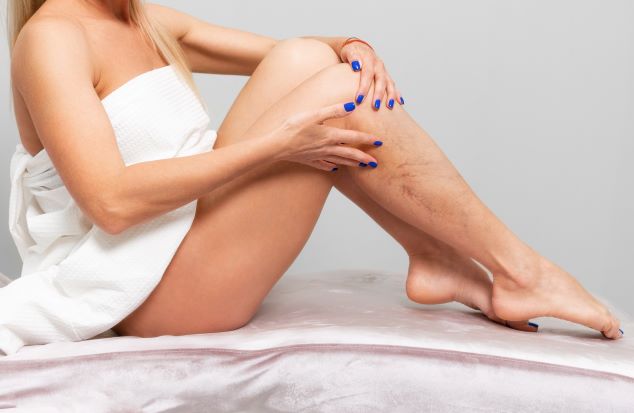Understanding Eczema: Causes, Symptoms, and Treatment Options
Eczema is a skin condition that affects millions of people worldwide, irrespective of age. It’s characterized by red, itchy, and inflamed skin patches, often accompanied by discomfort and irritation. While eczema is commonly associated with infants and children, it can also be a concern for seniors and the elderly. In this comprehensive guide, we’ll explore what eczema is, its causes, symptoms, and various treatment options, with a special focus on its impact and management in older adults.
What Is Eczema?
Eczema, also known as atopic dermatitis, is a chronic skin condition that leads to inflamed, itchy, and irritated skin. It often manifests as red, scaly patches, which can appear on various parts of the body. While eczema is most commonly seen in children and infants, it can persist into adulthood and even develop later in life.
Causes of Eczema
The exact cause of eczema is not fully understood, but it is believed to result from a combination of genetic and environmental factors. People with a family history of eczema, allergies, or asthma are more likely to develop the condition. Environmental factors like exposure to certain allergens, irritants, and dry or cold weather can also trigger or exacerbate eczema symptoms.
Common Symptoms of Eczema
Eczema can manifest differently in individuals, but some common symptoms include:
- Itching: Pruritus, or itching, is a hallmark of eczema. The itchiness can be intense, leading to scratching, which can further aggravate the condition.
- Redness and Inflammation: Affected skin areas typically become red, inflamed, and may even ooze or crust over.
- Dry and Scaly Skin: Eczema often results in dry, scaly patches of skin that can be rough to the touch.
- Blisters: In some cases, small fluid-filled blisters may develop, which can be painful.
- Thickened Skin: Over time, continuous scratching can lead to thickened skin in the affected areas.
- Discomfort: Eczema can be uncomfortable and, at times, painful, especially when the skin becomes cracked and open.
Eczema in Seniors and the Elderly
While eczema is more commonly associated with infants and children, it can affect individuals of all ages, including seniors and the elderly. Managing eczema in older adults can present unique challenges, as aging skin tends to be drier and more fragile. Additionally, seniors may have other health conditions that complicate the management of eczema.
Treatment Options for Eczema
Eczema is a chronic condition, and there is no cure, but various treatment options are available to help manage and alleviate symptoms. The choice of treatment depends on the severity of the condition and individual preferences. Here are some common approaches to eczema management:
- Topical Steroids: These are the most frequently prescribed medications for eczema. They help reduce inflammation and relieve itching. Mild steroids are often used on the face and other sensitive areas, while stronger ones may be prescribed for more severe cases.
- Moisturizers: Keeping the skin well-hydrated is crucial in managing eczema. Regularly applying moisturizers helps prevent dryness and itching.
- Topical Calcineurin Inhibitors: These medications can be used as an alternative to steroids for certain areas of the body, such as the face and neck.
- Antihistamines: These drugs can help relieve itching and promote better sleep when taken before bedtime.
- Phototherapy: Controlled exposure to ultraviolet (UV) light under medical supervision can help alleviate eczema symptoms.
- Biologics: For severe cases of eczema that do not respond to other treatments, biologic medications that target specific immune system functions may be prescribed.
Tips for Seniors and the Elderly with Eczema
Managing eczema in older adults requires a specialized approach due to the unique challenges that come with aging skin. Here are some essential tips for seniors and the elderly dealing with eczema:
- Gentle Skincare: Use mild, fragrance-free cleansers and moisturizers designed for sensitive skin to avoid further irritation.
- Avoid Hot Water: Hot water can strip the skin of natural oils and worsen dryness. Use lukewarm water for bathing and showering.
- Stay Hydrated: Drinking enough water is essential for overall skin health. Adequate hydration helps maintain skin elasticity.
- Wear Soft Fabrics: Opt for soft, breathable fabrics like cotton to reduce skin irritation from clothing.
- Manage Stress: Stress can exacerbate eczema symptoms. Engage in stress-reduction techniques like meditation, yoga, or deep breathing exercises.
- Consult a Dermatologist: For persistent or severe eczema, seek the expertise of a dermatologist who can provide tailored treatment recommendations.
To ease the burden of daily treatments and chores, you can take advantage of in-home personal care services.
Conclusion
Eczema is a common skin condition that affects individuals of all ages, including seniors and the elderly. While there is no cure, various treatment options can help manage symptoms and improve the quality of life for those with eczema. Seniors should be particularly mindful of their skin’s changing needs and seek specialized care when necessary to ensure effective management of this chronic condition.



